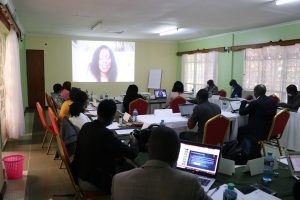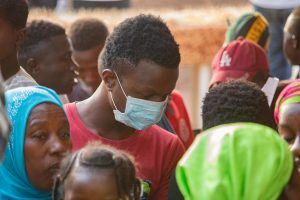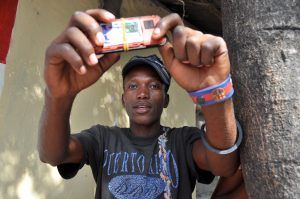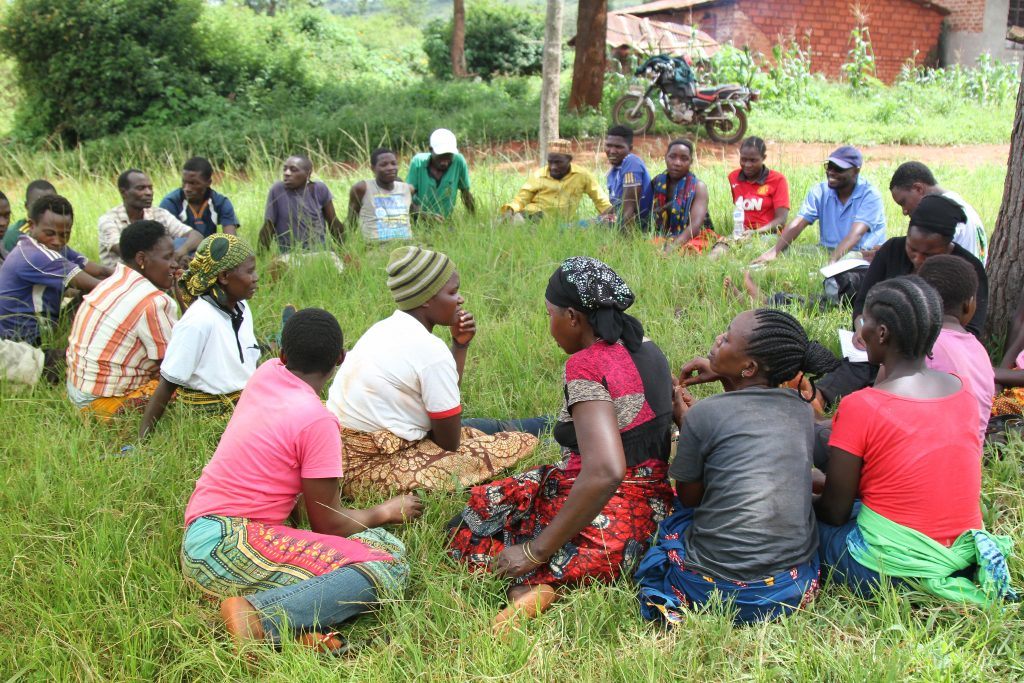Online or Offline, Citizen Engagement Needs to Be Underpinned by Core Open Government Principles
At Twaweza, we passionately advocate to include citizens in the decisions that impact their lives. While the concept is not new or revolutionary, we have a unique approach. Since 2013 we have run Sauti za Wananchi, Africa’s first mobile phone survey, polling citizens every month or two on diverse topics: how they are experiencing services, whether they are benefitting from specific entitlements and standards, their opinions on what is happening in the country, and more.
And as the world continues to grapple with the Coronavirus, we see that many governments, NGOs and academics are looking to engage citizens online to ensure that they follow official guidelines to prevent the virus from spreading; to follow up on whether COVID-19 funds and supplies are getting where they are supposed to; and to fight disinformation. Based on our experience running Sauti za Wananchi, we offer the following insights.
1. Trust matters. You cannot expect honesty or acceptance when there is no trust. Although Sauti za Wananchi is a mobile phone survey, we first travel to meet with and recruit all respondents. We explain what we aim to do and what they can expect from being part of the panel. We even travel to pay our condolences when our respondents pass away. This helps to build a relationship of trust and openness, making citizens more willing to participate and share their thoughts even on controversial questions.
For anyone seeking to engage citizens, it’s important to demonstrate that:
- engagement is genuine and meaningful, not tokenistic
- intentions and acts are clear and honest
- efforts are done to solve citizens’ problems
Then, citizens can share their problems, priorities and solutions,, and they will be more likely to pay attention to what governments are saying.
2. InclusionOGP participating governments are working to create governments that truly serve all people. Commitments in this area may address persons with disabilities, women and girls, lesbian, gay, bisexual, tr... More is the cornerstone. Who is part of the conversation and why? The design of Sauti za Wananchi ensures that every citizen with phone network coverage has an equal chance of participating in our panel of respondents. By using random selection at every stage, we ensure a representative and inclusive sample. We also ensure that the representation of marginalised groups such as women and young people is proportionate to the overall population. We distribute basic mobile phones and accompanying solar chargers to all panellists to ensure that the poor, who are significantly less likely to own phones or be connected to the national power grid, are not left out.
All of us in this space should be honest about who participates, who doesn’t, and why. We must actively counter existing biases and exclusionary practices, especially to include young women who are doubly marginalised.
3. Provide feedback. Nobody wants to feel as if they are providing views and ideas that disappear into a vortex. Many in East Africa feel disillusioned when they see no changes in their communities after participating in research processes. So, for Sauti za Wananchi, we make sure we go back to communities and provide a sense of where the data they shared is – to which government officials and media it went to. We also share the influence and impact the data has had. Respondents know they are part of something bigger and feel proud to contribute to national agendas.
4. Fit for purpose. Matching technology to context matters. We opted for phone calls over text messaging due to concerns about literacy and willingness to engage with long complex questions over text messages. We manage the length of questionnaires and the complexity of questions to keep calls under 20 minutes so respondents remain engaged.
Recently, some have found online video calls and Zoom engagements too difficult to manage, which hinders our opportunity to build relationships amongst participants. No technology is a panacea, and nothing can replace the value generated by face-to-face engagements. So it is critical to align your purpose, platform and approach.
Technology provides exciting new ways to reach people, which governments and others can definitely take advantage of. But the basic principles of trust, inclusiveness, feedback and being fit for purpose are still firmly in place.
For those looking to use technological innovations to engage citizens organisations like the Open Government PartnershipThe Open Government Partnership (OGP) is a multi-stakeholder initiative focused on improving government transparency, ensuring opportunities for citizen participation in public matters, and strengthen... More offer a unique platform, range of tools, tactics and ideas to get started. OGP members should always make enhanced citizen engagement a core part of their commitments to ensure they are walking the talk.
Comments (1)
Leave a Reply
Related Content

Addressing Gender Equity Challenges in Open Government Co-Creation Processes
The Feminist Open Government Initiative aims to use research and action to encourage governments and civil society to champion new initiatives leading to gender advancements in open government.
 Challenges and Solutions
Challenges and Solutions
In Kenya, the OGP Process Provides Space to Redefine Civil Society Relations with Government
 Challenges and Solutions
Challenges and Solutions
Leveraging OGP for a Transparent COVID-19 Response in Africa
Like governments around the world, African countries have shifted enormous resources to respond to the COVID-19 pandemic. Given such massive spending, fiscal transparency is more important than ever to minimize…



Maria Luisa Palma Reply
Estimados: En este año de pandemia la desigualdad de los ciudadanos a quedado al descubierto. La agenda 2030 que encaraba poder cerrar un poco la brecha desigual quedó desarmada. Los esfuerzos de los gobernantes de nuestro mundo Global, debe encararse en soluciones para las comunidades marginadas. No pueden esperar más, cada uno de los ciudadanos del mundo podemos poner nuestro granito de arena, pero si los gobiernos que recogen las ayudas no velan por los intereses de los mas marginados, siempre quedan en el olvido (todo trabajo no sostenido se pierde). Deseo que estas falencias se reviertan, lo antes posible.